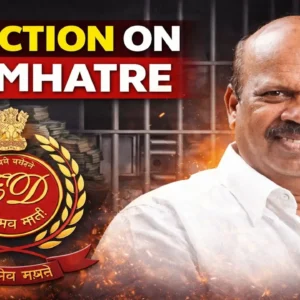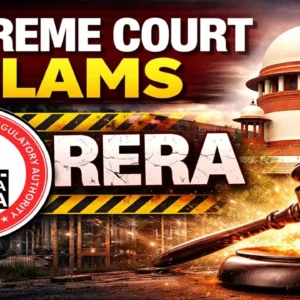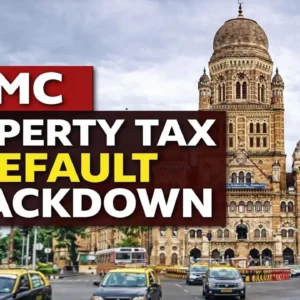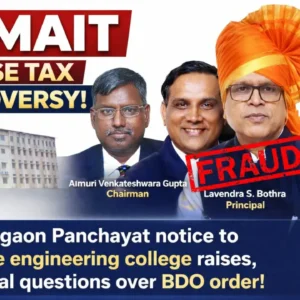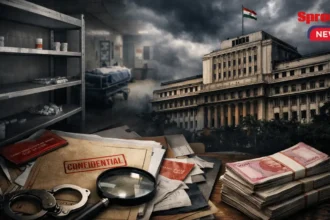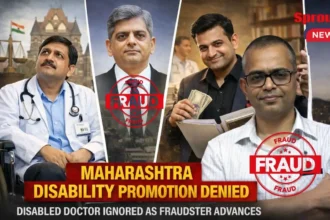NCST Takes Action: Madhya Pradesh Served Notice Over Tribal Surgeon Shortage
• PVTG Healthcare Despair: No Surgeons, Preventable Deaths in Tribal Belts
• Constitutional Body NCST Intervenes in Madhya Pradesh’s Healthcare Failure
• From Local Neglect to National Case: The Escalating Tribal Health Crisis
The National Commission for Scheduled Tribes (NCST) has issued a formal notice to the Madhya Pradesh government over the denial of surgical care to tribal communities. This shortage has allegedly led to preventable deaths among Particularly Vulnerable Tribal Groups (PVTGs). The NCST’s intervention marks a pivotal step toward holding the state accountable for healthcare neglect in regions like Shahdol and Mandla. The notice, prompted by investigative findings, highlights systemic failures in implementing healthcare mandates for tribal welfare.
- NCST Takes Action: Madhya Pradesh Served Notice Over Tribal Surgeon Shortage
- • PVTG Healthcare Despair: No Surgeons, Preventable Deaths in Tribal Belts
- • Constitutional Body NCST Intervenes in Madhya Pradesh’s Healthcare Failure
- • From Local Neglect to National Case: The Escalating Tribal Health Crisis
- NCST Issues Notice to Madhya Pradesh Over Tribal Healthcare Crisis Following Investigative Reports
- PVTG Healthcare Crisis Reaches National Stage
- Investigation Exposes State Defiance of NHM Guidelines
- Constitutional Accountability and Governance Reckoning
- Journalism’s Role in Enforcing Constitutional Promises
The Madhya Pradesh government has been asked to submit a detailed response, outlining corrective measures to address the life-threatening gaps in rural medical services. This constitutional action, spurred by an investigative exposé, addresses a severe surgeon shortage leading to preventable tragedies. The state is now under scrutiny, marking a significant impact for accountability in tribal healthcare.
Click Here To Download the News Attachment
NCST Issues Notice to Madhya Pradesh Over Tribal Healthcare Crisis Following Investigative Reports
A constitutional body has intervened after investigations exposed a severe surgeon shortage in Madhya Pradesh’s tribal districts, validating long-standing grievances of the PVTG community.
The National Commission for Scheduled Tribes (NCST) has formally notified the Madhya Pradesh government. This action addresses the denial of surgical healthcare in tribal belts like Shahdol. The move follows relentless investigative reporting on the systemic failure. It highlights a critical lapse in tribal welfare and health directives.
PVTG Healthcare Crisis Reaches National Stage
The NCST’s Office Memorandum (No. 20025/66/2024-NCST) directs the Tribal Welfare Commissioner to act. The notice demands urgent resolution of grievances from the Baiga and Gond communities. These PVTG groups reported zero government surgeons in their regions. This absence has led to preventable maternal deaths and patient amputations.
The Commission has instructed state officials to take appropriate action. They must also inform the complainant of the steps taken. This marks the first constitutional recognition of a healthcare collapse in tribal Madhya Pradesh. The state’s inaction now faces serious legal and administrative scrutiny.
Also Read: Laxmi Gold Scam: Valecha Family Accused of 1.25 KG Gold Fraud.
Investigation Exposes State Defiance of NHM Guidelines
Earlier investigations uncovered multiple contradictions within the state health department. The Principal Secretary of Health allegedly misled the national child rights body. Officials denied the existence of sanctioned National Health Mission surgeon posts.
A June 2025 government order, however, proved these posts were approved. The Union Health Ministry later confirmed surgeons can perform C-sections in tribal areas. This is mandated under the 2014 NHM guidelines for emergency obstetric care.
Ground verification from Shahdol, Umaria, and Dindori confirmed the grim reality. No surgeons were present to provide essential emergency care. The tragic amputation of Basohra Baiga, a PVTG member, symbolized this systemic neglect. He lost his leg due to an untreated infection.
Constitutional Accountability and Governance Reckoning
The NCST action signifies a major turning point for tribal healthcare governance. It compels state departments to submit a detailed report to the Commission. Officials must also answer to the Union Government in Delhi.
The notice invokes Article 338A of the Indian Constitution. This empowers the NCST with civil-court-like powers for non-compliance. Senior officials could face direct inquiry and personal accountability. The move opens a path for legal action against prolonged healthcare denial.
Documentary evidence from investigative reports triggered this response. Grieviances were also forwarded to the Prime Minister’s Office and central departments. The Cabinet Secretariat and Ministry of Tribal Affairs are now monitoring compliance.
Journalism’s Role in Enforcing Constitutional Promises
“We will not let bureaucratic silence bury tribal suffering,” said Unmesh Gujarathi, Editor-in-Chief. “Every withheld appointment and every amputated life will be documented.”
This consistent editorial stance has yielded visible impact. A suppressed local struggle is now a national constitutional issue. The Sprouts News investigation has bridged the gap between community suffering and institutional redress.
Monitoring will continue to ensure tribal districts receive a permanent General Surgeon. The Ministry of Tribal Affairs is urged to publish quarterly progress reports. Factual and fearless journalism can enforce promises to India’s most neglected citizens.







